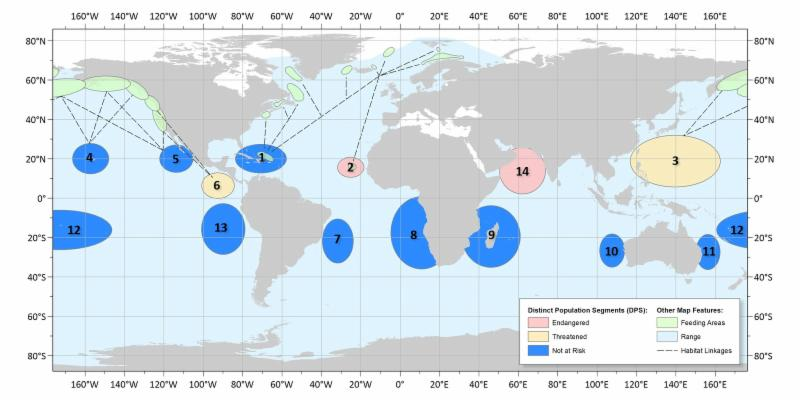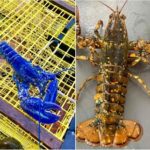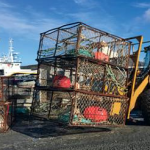Tag Archives: Endangered Species Act
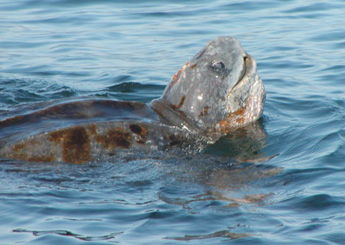
World’s largest sea turtle could come off ‘endangered’ list
An arm of the National Oceanic and Atmospheric Administration has received a petition from a fishing group asking that the Northwest Atlantic Ocean’s leatherback sea turtles be listed as “threatened,” but not endangered, under the Endangered Species Act.,,, NOAA officials have said the agency has reviewed the petition from New Jersey-based Blue Water Fishermen’s Association and found “substantial scientific and commercial information” that the move might be warranted. The agency now has about eight months to make a decision about the status of the turtles. >click here to read< 13:56

The Illegal Black Market – Abalone haul costs man $500,000
A Chula Vista man who owns a seafood company was fined $15,000 Dec. 18 and ordered to forfeit $500,000 in proceeds stemming from his illegally importing abalone from Mexico without specifying from where it came. Yon Pon Wong, 65, the owner of the Lucky Company, pleaded guilty to false labeling in the U.S. in which he sold 148,500 pounds of abalone and falsely stated where he obtained it. click here to read the story 17:46
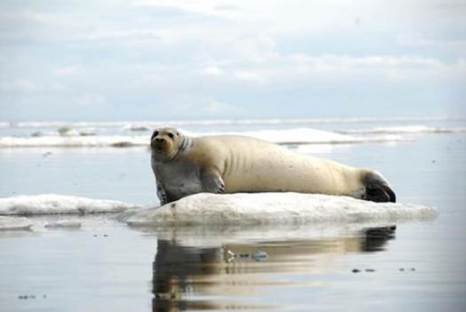
Listing the Bearded Seal as Threatened: A Disturbing Victory for Untestable Hypotheses and Flawed Models.
The Center for Biological Diversity also petitioned to list thriving populations of Bearded Seals as threatened or endangered by melting sea ice. In response to their petition, the National Marine Fisheries Service (NMFS) assembled a Bearded Seal Biological Review Team (BRT). The BRT’s report can be read here. Oddly, despite promoting a threatened designation, the BRT reports Bearded Seals have existed for over 1-2 million years, surviving far greater bouts of climate change as the earth bounced between several ice ages and warmer interglacials. An interesting (click here) read by Jim Steele 18:25:37
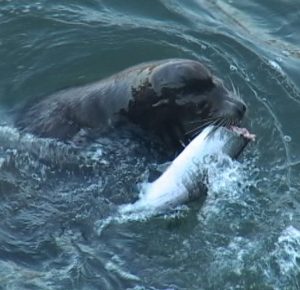
Oregon Eyes Killing Sea Lions to Save Steelhead Trout
Fish managers scrambling to gain approval to kill dozens of California sea lions feasting on threatened winter steelhead trout got a bump this week from a study blaming the creatures for taking food from orcas. But some say the effort is a misguided attempt to scapegoat natural predators for the human-caused decline of their prey. In 1999, about 15,000 winter steelhead passed Willamette Falls. In 2016, scientists with the Oregon Department of Fish and Wildlife counted just 512.,, “We’re looking at a threat of extinction posed by sea lions,” Shaun Clements, the agency’s senior fish policy advisor, told the Fish and Wildlife Commission at a meeting in September. click here to read the story 08:04
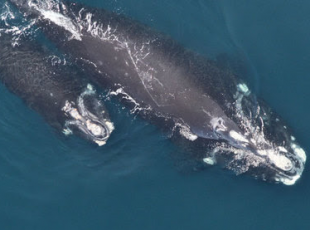
NOAA Fisheries Recommends Actions to Help Right Whales
Coming at the end of a devastating summer for right whales, the North Atlantic Right Whale Five-Year Review and its list of recommended actions to promote right whale recovery is particularly timely.,, In July 2016, we initiated this Review, as we do every five years, to make sure that species are accurately listed as “endangered” or “threatened” under the Endangered Species Act. Our Five-Year Review is now complete and provides updates on the right whale population in U.S. waters. The Five-Year Review recommends, not surprisingly, that North Atlantic right whales continue to be listed as endangered, and confirms that they experiencing: click here to read the recommendations 13:06
Legislative Hearing on Endangered Species Act, Hydropower Bills – Thursday, October 12, 2017 10:00 AM – Watch Live.
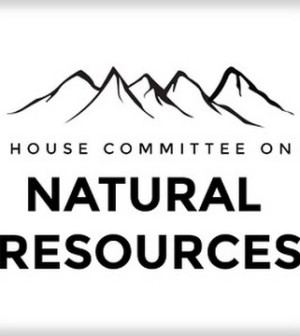 H.R. 3144 (Rep. Cathy McMorris Rodgers), To provide for operations of the Federal Columbia River Power System pursuant to a certain operation plan for a specified period of time, and for other purposes. – H.R. 3916 (Rep. Ken Calvert), To amend the Endangered Species Act of 1973 to vest in the Secretary of the Interior functions under that Act with respect to species of fish that spawn in fresh or estuarine waters and migrate to ocean waters, and species of fish that spawn in ocean waters and migrate to fresh waters. “Federally Integrated Species Health (FISH) Act” Starts 10:00, click here to read the info 18:59
H.R. 3144 (Rep. Cathy McMorris Rodgers), To provide for operations of the Federal Columbia River Power System pursuant to a certain operation plan for a specified period of time, and for other purposes. – H.R. 3916 (Rep. Ken Calvert), To amend the Endangered Species Act of 1973 to vest in the Secretary of the Interior functions under that Act with respect to species of fish that spawn in fresh or estuarine waters and migrate to ocean waters, and species of fish that spawn in ocean waters and migrate to fresh waters. “Federally Integrated Species Health (FISH) Act” Starts 10:00, click here to read the info 18:59
Enviro Groups Demand U.S., Canada Act to Save North Atlantic Right Whales
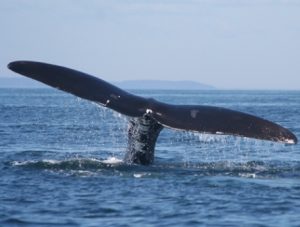 Conservation and animal-protection groups today sought action by the United States and Canada to prevent painful, deadly entanglements in fishing gear that threaten the critically endangered North Atlantic right whale. In letters to Canadian officials and the U.S. National Marine Fisheries Service, the groups demanded action to reduce risks to these imperiled whales. North Atlantic right whales, one of the world’s most endangered mammals with fewer than 500 individual animals remaining on Earth, lost nearly 3 percent of their population this year. click here to read the story 14:00
Conservation and animal-protection groups today sought action by the United States and Canada to prevent painful, deadly entanglements in fishing gear that threaten the critically endangered North Atlantic right whale. In letters to Canadian officials and the U.S. National Marine Fisheries Service, the groups demanded action to reduce risks to these imperiled whales. North Atlantic right whales, one of the world’s most endangered mammals with fewer than 500 individual animals remaining on Earth, lost nearly 3 percent of their population this year. click here to read the story 14:00

Trump administration urged to avoid salmon protection rules
A group that represents farmers is calling the costs of saving imperiled salmon in the largest river system in the Pacific Northwest unsustainable and is turning to the Trump administration to sidestep endangered species laws. The Columbia-Snake River Irrigators Association wants the government to convene a Cabinet-level committee with the power to allow exemptions to the Endangered Species Act. The irrigators association is frustrated with court rulings it says favor fish over people, claiming the committee could end years of legal challenges over U.S. dams on the Columbia and Snake rivers and bring stability for irrigators, power generators and other businesses that rely on the water. click here to read the story 18:12
The “Redheaded Stepchild of Fishing” – Controversial drift-gill net fishery wins long-fought battle
 Federal fishery managers denied a proposal this week to immediately shut down Southern California’s most controversial fishery in the event that wide-mesh gill nets accidentally kill a handful of certain marine mammals or sea turtle species. The swordfish and thresher shark fishery will remain open, even if it kills several whales or sea turtles, the NOAA’s National Marine Fisheries decided. The decision not to institute so-called hard caps on the fishery comes after a public review period initiated last year was extended to discuss the law proposed by the state’s Pacific Fishery Management Council in 2014. For the few dozen fishers who still catch swordfish and thresher sharks off Southern California in deep-water drift gill nets, the decision brought a big sigh of relief. click here to read the story 08:38
Federal fishery managers denied a proposal this week to immediately shut down Southern California’s most controversial fishery in the event that wide-mesh gill nets accidentally kill a handful of certain marine mammals or sea turtle species. The swordfish and thresher shark fishery will remain open, even if it kills several whales or sea turtles, the NOAA’s National Marine Fisheries decided. The decision not to institute so-called hard caps on the fishery comes after a public review period initiated last year was extended to discuss the law proposed by the state’s Pacific Fishery Management Council in 2014. For the few dozen fishers who still catch swordfish and thresher sharks off Southern California in deep-water drift gill nets, the decision brought a big sigh of relief. click here to read the story 08:38
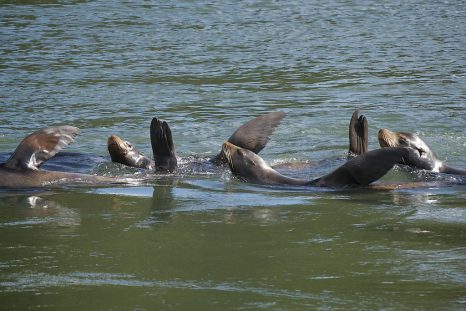
Sea lions moving into smaller streams – “They’re working on wild fish,”
In the past month or two, a few California (one Steller) sea lions have moved into the lower stretches of the Sandy River and as many as half-dozen (some say more) are devouring winter steelhead in the Clackamas River, as far up as Eagle Creek. Washington officials report sea lions prowling the lower Cowlitz, Lewis and Washougal rivers. And these aren’t just any winter steelhead tickling their palates. By this time of year, the earlier-arriving hatchery-origin steelhead run is largely finished, Todd Alsbury, department district fish biologist, told a group of sportfishing leaders in Clackamas. “They’re working on wild fish,” Alsbury said. “It could make Ballard Locks pale in comparison.” Remember Ballard Locks in Seattle? Apparently few, if any, real lessons were learned from the decimation of Lake Washington’s meager (2,000-3,000 fish) wild steelhead runs by Herschel and a handful of sea lions in the 1990s. Click here to read the article 14:12
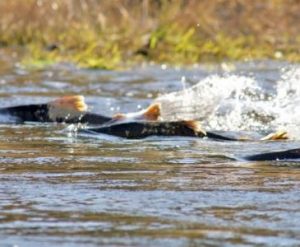
Feds Facing Order to Redirect Klamath River Water for Salmon
Two Native American tribes sued the U.S. Bureau of Reclamation last year, claiming its bungled management of Klamath River waterways allowed a deadly parasite to infect 91 percent of endangered juvenile Coho and Chinook salmon. The Yurok and Hoopa Valley Tribes say they depend on the salmon for subsistence, income and for traditional ceremonies that define their people. Lawyers for the federal government and an industry group of farmers and ranchers argue that diverting water to help salmon will harm businesses that support local jobs and communities and threaten another set of endangered fish, the shortnose sucker and Lost River sucker. In separate complaints against the federal government, the tribes say infection rates caused by the deadly parasite C. shasta, should have required the bureau to review its Klamath Irrigation Project’s impact on threatened salmon two years ago, but the bureau failed to take action in violation of the Endangered Species Act.During a hearing Friday, U.S. District Judge William Orrick III agreed the bureau should have reviewed the project when infection rates climbed to 81 percent in 2014 and 91 percent in 2015, well beyond the maximum 49 percent estimated in a 2013 biological opinion issued by co-defendant National Marine Fisheries Service. Read the story here 16:47
These California and Oregon farmers lost water in 2001. Now they want to be paid.
 Northern California and Oregon farmers who lost irrigation water in 2001 for the sake of fish are plunging into a climactic courtroom battle for tens of millions of dollars in compensation. Years in the making, the trial set to start Monday in the U.S. Court of Federal Claims near the White House involves a lot of money, but that’s not all. For other Westerners, too, it can have broader implications, clarifying what the government may owe for water steered away from crops toward environmental protection. “It’s a civil rights case, at bottom,” farmers’ attorney Nancie Marzulla said in an interview. “It involves the protection of private property. We all expect the government to respect private property rights.” The same court ruled in 2001, for instance, that the federal government had taken water without paying compensation to California’s Tulare Lake Basin Water Storage District and others that had been deprived of water for the sake of the delta smelt and the winter-run chinook salmon. The judge later concluded the water districts were owed $13.9 million plus interest, and the case is still cited. Read the rest of the story here 15:10
Northern California and Oregon farmers who lost irrigation water in 2001 for the sake of fish are plunging into a climactic courtroom battle for tens of millions of dollars in compensation. Years in the making, the trial set to start Monday in the U.S. Court of Federal Claims near the White House involves a lot of money, but that’s not all. For other Westerners, too, it can have broader implications, clarifying what the government may owe for water steered away from crops toward environmental protection. “It’s a civil rights case, at bottom,” farmers’ attorney Nancie Marzulla said in an interview. “It involves the protection of private property. We all expect the government to respect private property rights.” The same court ruled in 2001, for instance, that the federal government had taken water without paying compensation to California’s Tulare Lake Basin Water Storage District and others that had been deprived of water for the sake of the delta smelt and the winter-run chinook salmon. The judge later concluded the water districts were owed $13.9 million plus interest, and the case is still cited. Read the rest of the story here 15:10
Environmental group dislikes new rule for listing, delisting or reclassification under the Endangered Species Act
 The U.S. Fish and Wildlife Service and National Oceanic and Atmospheric Administration (NOAA) Fisheries finalized a rule Monday that changes the process by which species are petitioned for listing, delisting or reclassification under the Endangered Species Act (ESA). Under the rule, first proposed in May 2015, petitioners will be required to notify each state wildlife agency where a species is located at least 30 days before submitting a petition to the federal government. The delay will gives states an opportunity to provide agencies with pertinent information on the species. The new rule also restricts the number of species that can be petitioned for at one time. Under the rule, only one species is allowed per petition. The Center for Biological Diversity was quick to slam the rule, calling it an “impediment” to using the Endangered Species Act. “These new restrictions on citizen petitions are nothing more than a gift to industries and right-wing states that are hostile to endangered species,” Brett Hartl, the group’s director of endangered species policy, said in a statement. Read the story here 10:34
The U.S. Fish and Wildlife Service and National Oceanic and Atmospheric Administration (NOAA) Fisheries finalized a rule Monday that changes the process by which species are petitioned for listing, delisting or reclassification under the Endangered Species Act (ESA). Under the rule, first proposed in May 2015, petitioners will be required to notify each state wildlife agency where a species is located at least 30 days before submitting a petition to the federal government. The delay will gives states an opportunity to provide agencies with pertinent information on the species. The new rule also restricts the number of species that can be petitioned for at one time. Under the rule, only one species is allowed per petition. The Center for Biological Diversity was quick to slam the rule, calling it an “impediment” to using the Endangered Species Act. “These new restrictions on citizen petitions are nothing more than a gift to industries and right-wing states that are hostile to endangered species,” Brett Hartl, the group’s director of endangered species policy, said in a statement. Read the story here 10:34
NOAA: Successful conservation efforts pay off for humpback whales
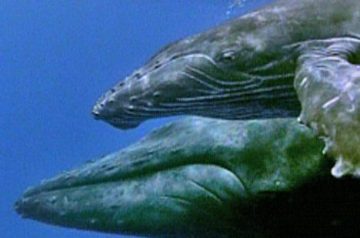 Endangered humpback whales in nine of 14 newly identified distinct population segments have recovered enough that they don’t warrant listing under the Endangered Species Act, NOAA Fisheries said today. International conservation efforts to protect and conserve whales over the past 40 years proved successful for most populations. Four of the distinct population segments are still protected as endangered, and one is now listed as threatened. “Today’s news is a true ecological success story,” said Eileen Sobeck, assistant NOAA administrator for fisheries. “Whales, including the humpback, serve an important role in our marine environment. Separately managing humpback whale populations that are largely independent of each other allows us to tailor conservation approaches for each population.” Read the rest here Read the press release here with links 09:15
Endangered humpback whales in nine of 14 newly identified distinct population segments have recovered enough that they don’t warrant listing under the Endangered Species Act, NOAA Fisheries said today. International conservation efforts to protect and conserve whales over the past 40 years proved successful for most populations. Four of the distinct population segments are still protected as endangered, and one is now listed as threatened. “Today’s news is a true ecological success story,” said Eileen Sobeck, assistant NOAA administrator for fisheries. “Whales, including the humpback, serve an important role in our marine environment. Separately managing humpback whale populations that are largely independent of each other allows us to tailor conservation approaches for each population.” Read the rest here Read the press release here with links 09:15
Another Crackpot ENGO, Another ESA Lawsuit against the NMFS
 Defenders of fish with funny names — including the blackchin guitar fish, the violin fish and porbeagle shark — sued the federal government Wednesday, demanding the fish be listed as threatened or endangered. WildEarth Guardians says the Secretary of Commerce, the National Oceanic and Atmospheric Administration and the National Marine Fisheries Service missed their 12-month deadline to rule under the Endangered Species Act. All five species — including the Caribbean electric ray and Hector’s dolphin — are “at significant risk of extinction,” the Montana-based conservation group says. Listing could protect the species from recreational and commercial fishing and development. The Endangered Species Act requires the defendant agencies to issue findings within 90-day and 12-month timeframes in most cases. But the National Marine Fisheries Service has “regularly ignored these statutory procedures and have consistently missed statutory listing deadlines,” WildEarth Guardians says. Read the rest here 14:10
Defenders of fish with funny names — including the blackchin guitar fish, the violin fish and porbeagle shark — sued the federal government Wednesday, demanding the fish be listed as threatened or endangered. WildEarth Guardians says the Secretary of Commerce, the National Oceanic and Atmospheric Administration and the National Marine Fisheries Service missed their 12-month deadline to rule under the Endangered Species Act. All five species — including the Caribbean electric ray and Hector’s dolphin — are “at significant risk of extinction,” the Montana-based conservation group says. Listing could protect the species from recreational and commercial fishing and development. The Endangered Species Act requires the defendant agencies to issue findings within 90-day and 12-month timeframes in most cases. But the National Marine Fisheries Service has “regularly ignored these statutory procedures and have consistently missed statutory listing deadlines,” WildEarth Guardians says. Read the rest here 14:10
NMFS Shoots Down Defenders of Wildlife petition to list Smooth Hammerhead Shark under Endangered Species Act
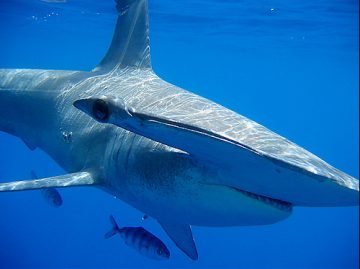 We, NMFS, announce a 12-month finding on a petition to list the smooth hammerhead shark (Sphyrna zygaena) as threatened or endangered under the Endangered Species Act (ESA). We have completed a comprehensive status review of the smooth hammerhead shark in response to this petition. Based on the best scientific and commercial information available, including the status review report (Miller 2016), we have determined that the species does not warrant listing at this time. We conclude that the smooth hammerhead shark is not currently in danger of extinction throughout all or a significant portion of its range and is not likely to become so within the foreseeable future. Read the rest here 11:28
We, NMFS, announce a 12-month finding on a petition to list the smooth hammerhead shark (Sphyrna zygaena) as threatened or endangered under the Endangered Species Act (ESA). We have completed a comprehensive status review of the smooth hammerhead shark in response to this petition. Based on the best scientific and commercial information available, including the status review report (Miller 2016), we have determined that the species does not warrant listing at this time. We conclude that the smooth hammerhead shark is not currently in danger of extinction throughout all or a significant portion of its range and is not likely to become so within the foreseeable future. Read the rest here 11:28
Video shows man attacking Hawaiian monk seal, culture expert mentions commercial fishermen?
 One of Kauai’s most popular Hawaiian monk seals was attacked on Tuesday night at Salt Pond Beach Park, and a video recording of the scuffle is circulating on social media. The footage shows an unidentified man enter the water at Salt Pond at sunset and attack RK30, a full-grown female monk seal, in what appears to be an attempt to chase the her from her resting place on the beach. Kumu Sabra Kauka, who teaches Hawaiian culture through education around the island, said she was disturbed when she saw the video. “That kind of behavior is uncalled for and is inexcusable,” she said. “Being high or drunk is no excuse. She said sometimes this kind of aggression toward the Hawaiian Monk Seals stems from the commercial fishing community and the mindset that the seals are stealing the fish from their nets. Read the article here Watch the video here 13:03
One of Kauai’s most popular Hawaiian monk seals was attacked on Tuesday night at Salt Pond Beach Park, and a video recording of the scuffle is circulating on social media. The footage shows an unidentified man enter the water at Salt Pond at sunset and attack RK30, a full-grown female monk seal, in what appears to be an attempt to chase the her from her resting place on the beach. Kumu Sabra Kauka, who teaches Hawaiian culture through education around the island, said she was disturbed when she saw the video. “That kind of behavior is uncalled for and is inexcusable,” she said. “Being high or drunk is no excuse. She said sometimes this kind of aggression toward the Hawaiian Monk Seals stems from the commercial fishing community and the mindset that the seals are stealing the fish from their nets. Read the article here Watch the video here 13:03
Green Sea turtles put under new protections by Obama administration
 The National Marine Fisheries Service (NMFS) and U.S. Fish and Wildlife Service (USFWS) announced Tuesday they are updating the status of green sea turtles. Green sea turtles will be divided into 11 distinct populations, the agencies said. Turtles in three of those regions will be listed as endangered species, while those in the other eight regions will be listed as threatened species . The agencies first began protecting sea turtles in 1978, but are now revising their status. As part of the changes, two distinct populations that had been considered endangered — the Florida and Mexican Pacific Coast breeding populations — will now be listed as threatened. Read the rest here, Read the Final Rule here 15:07
The National Marine Fisheries Service (NMFS) and U.S. Fish and Wildlife Service (USFWS) announced Tuesday they are updating the status of green sea turtles. Green sea turtles will be divided into 11 distinct populations, the agencies said. Turtles in three of those regions will be listed as endangered species, while those in the other eight regions will be listed as threatened species . The agencies first began protecting sea turtles in 1978, but are now revising their status. As part of the changes, two distinct populations that had been considered endangered — the Florida and Mexican Pacific Coast breeding populations — will now be listed as threatened. Read the rest here, Read the Final Rule here 15:07
Environmentalists Wield Powerful Endangered Species Act to Kill Jobs
 Think fish when you read this. From the article: The Center for Biological Diversity (CBD) is a radical environmental legal action group that’s known for frequently suing to block commercial, industrial, and personal activities in an effort to “save the environment,” regardless of who gets hurt. One of the group’s leaders and co-founders, Kieran Suckling, was a well-known activist in the 1980s and has been linked to vandalism and sabotage group Earth First! From its inception, CBD has sought ways to permanently stop natural resource use, and with the help of environmental attorneys, CBD has successfully weaponized the Endangered Species Act (ESA) against ranchers, loggers, miners, (fishermen) and human activity in general. Read the rest here 13:51
Think fish when you read this. From the article: The Center for Biological Diversity (CBD) is a radical environmental legal action group that’s known for frequently suing to block commercial, industrial, and personal activities in an effort to “save the environment,” regardless of who gets hurt. One of the group’s leaders and co-founders, Kieran Suckling, was a well-known activist in the 1980s and has been linked to vandalism and sabotage group Earth First! From its inception, CBD has sought ways to permanently stop natural resource use, and with the help of environmental attorneys, CBD has successfully weaponized the Endangered Species Act (ESA) against ranchers, loggers, miners, (fishermen) and human activity in general. Read the rest here 13:51
Work under way on Endangered Species Act hatchery plans
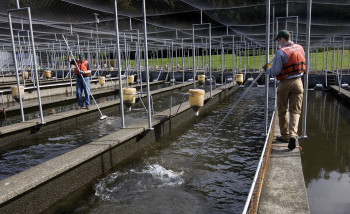 The National Marine Fisheries Service says it has completed work on plans for 26 Columbia River hatcheries and is actively working on Endangered Species Act review of 32 more, including 16 on lower Columbia tributaries in Washington. The numbers from the federal fishery agency were provided in response to a 60-day notice of intent to sue announced Jan. 13 by the Wild Fish Conservancy, which claims the government is funding Columbia River hatcheries prior to meeting mandated review of plans under the Endangered Species Act. Read the rest here 11:09
The National Marine Fisheries Service says it has completed work on plans for 26 Columbia River hatcheries and is actively working on Endangered Species Act review of 32 more, including 16 on lower Columbia tributaries in Washington. The numbers from the federal fishery agency were provided in response to a 60-day notice of intent to sue announced Jan. 13 by the Wild Fish Conservancy, which claims the government is funding Columbia River hatcheries prior to meeting mandated review of plans under the Endangered Species Act. Read the rest here 11:09
Willapa Bay plan cuts Chinook production by one-third
 The production of hatchery Chinook in Willapa Bay will decrease by more than one-third as a result of a policy adopted recently by the Washington Fish and Wildlife Commission. The policy, adopted in June, also is likely to decrease the number of fish commercial fishermen can catch if the commission’s action survives a legal challenge. Washington Department of Fish and Wildlife officials have said that they needed to adopt the new policy to avoid having the Chinook listed under the federal Endangered Species Act. Read the rest here 10:14
The production of hatchery Chinook in Willapa Bay will decrease by more than one-third as a result of a policy adopted recently by the Washington Fish and Wildlife Commission. The policy, adopted in June, also is likely to decrease the number of fish commercial fishermen can catch if the commission’s action survives a legal challenge. Washington Department of Fish and Wildlife officials have said that they needed to adopt the new policy to avoid having the Chinook listed under the federal Endangered Species Act. Read the rest here 10:14
WPFMC question proposed rule on green sea turtles, address allocation of US tuna catches
 The council’s Scientific and Statistical Committee and Protected Species Advisory Committee noted a lack of transparency in the criteria used to make the status determinations, questionable interpretation of existing research and gaps in information considered. The Scientific and Statistical Committee, for example, said the proposal to continue to list the Hawai’i green turtle as threatened is contrary to analysis that showed zero chance of decline in the population in the foreseeable future. Read the rest here 20:15
The council’s Scientific and Statistical Committee and Protected Species Advisory Committee noted a lack of transparency in the criteria used to make the status determinations, questionable interpretation of existing research and gaps in information considered. The Scientific and Statistical Committee, for example, said the proposal to continue to list the Hawai’i green turtle as threatened is contrary to analysis that showed zero chance of decline in the population in the foreseeable future. Read the rest here 20:15
Here we go again. Animal Welfare Groups Seek Protection for Thorny Skate
 The Animal Welfare Institute (AWI) and Defenders of Wildlife have asked the National Marine Fisheries Service (NMFS) to list the Northwest Atlantic population of the thorny skate as threatened or endangered under the Endangered Species Act. “This species is in serious trouble in the Northwest Atlantic, and if we don’t move to protect it now, we may never see it in this range again,” said senior staff attorney Jane Davenport at Defenders of Wildlife. Shut up. Read the rest here 20:48
The Animal Welfare Institute (AWI) and Defenders of Wildlife have asked the National Marine Fisheries Service (NMFS) to list the Northwest Atlantic population of the thorny skate as threatened or endangered under the Endangered Species Act. “This species is in serious trouble in the Northwest Atlantic, and if we don’t move to protect it now, we may never see it in this range again,” said senior staff attorney Jane Davenport at Defenders of Wildlife. Shut up. Read the rest here 20:48
U.S. Fish and Wildlife Service, NOAA Propose Actions to Build on Successes of Endangered Species Act
 Building on the success of the Obama Administration in implementing the Endangered Species Act (ESA) in new and innovative ways, today the U.S. Fish and Wildlife Service and National Marine Fisheries Service (the Services) announced an additional suite of actions the Administration will take to improve the effectiveness of the Act and demonstrate its flexibility. The actions will engage the states, promote the use of the best available science and transparency in the scientific process,,, Theres plenty more NOAA Rah Rah to read here 14:39
Building on the success of the Obama Administration in implementing the Endangered Species Act (ESA) in new and innovative ways, today the U.S. Fish and Wildlife Service and National Marine Fisheries Service (the Services) announced an additional suite of actions the Administration will take to improve the effectiveness of the Act and demonstrate its flexibility. The actions will engage the states, promote the use of the best available science and transparency in the scientific process,,, Theres plenty more NOAA Rah Rah to read here 14:39
NEFSC Conducting Protected Species Program Review April 13-16 in Woods Hole, MA
 Science programs at NOAA’s Northeast Fisheries Science Center that support protected species conservation and management in the Northeast will be peer reviewed at the Center’s facility in Woods Hole, MA April 13-16, 2015. The species involved include whales, small cetaceans, seals, and sea turtles, as well as fish populations that fall under provisions of the federal Endangered Species Act. Click here for more information on the meeting, including logistics and meeting materials. Read the notice here 13:46
Science programs at NOAA’s Northeast Fisheries Science Center that support protected species conservation and management in the Northeast will be peer reviewed at the Center’s facility in Woods Hole, MA April 13-16, 2015. The species involved include whales, small cetaceans, seals, and sea turtles, as well as fish populations that fall under provisions of the federal Endangered Species Act. Click here for more information on the meeting, including logistics and meeting materials. Read the notice here 13:46NMFS Accepts Two Petitions to List Porbeagle Sharks under the Endangered Species Act
 Today, we announce that we have made a positive 90-day finding on two petitions (Wild Earth Guardians, and Humane Society US) submitted to us to consider listing porbeagle sharks (Lamna nasus) under the Endangered Species Act (ESA). This action is being taken in response to a recent court order concerning the negative 90-day finding we published in 2010, and in response to new information we have on porbeagle sharks. Read the rest here 10:06
Today, we announce that we have made a positive 90-day finding on two petitions (Wild Earth Guardians, and Humane Society US) submitted to us to consider listing porbeagle sharks (Lamna nasus) under the Endangered Species Act (ESA). This action is being taken in response to a recent court order concerning the negative 90-day finding we published in 2010, and in response to new information we have on porbeagle sharks. Read the rest here 10:06
Rising tide of America’s sustainable seafood by Ray Hilborn
This year marks 40 years since the passage of landmark Congressional legislation that fundamentally overhauled how the $90 billion U.S. commercial fisheries industry is managed. It established a unique public-private partnership in which the industry, working with scientists and both federal and local authorities, would regulate fishing according to agreed-upon scientific standards for environmental sustainability, even as the industry stretched to meet skyrocketing demand for seafood. Read the rest here 17:19
Oil lobby sues feds over threatened Alaska ringed seals
 The lawsuit also targets the National Marine Fisheries Service’s plan to label a 350,000-square-mile expanse of Alaska waters as critical habitat for the seals. Arctic ringed seals were designated by NOAA in late 2012 as a threatened species under the Endangered Species Act — a status one step short of being endangered. Read the rest here 08:45
The lawsuit also targets the National Marine Fisheries Service’s plan to label a 350,000-square-mile expanse of Alaska waters as critical habitat for the seals. Arctic ringed seals were designated by NOAA in late 2012 as a threatened species under the Endangered Species Act — a status one step short of being endangered. Read the rest here 08:45







